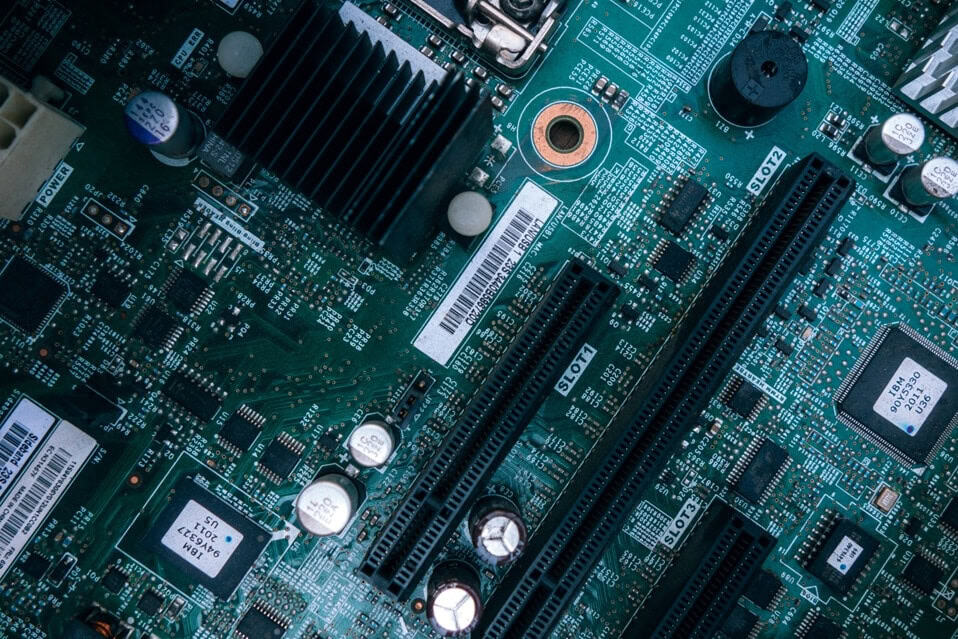Basics of Computer Science Made Easy!
Updated: June 19, 2024

You’re reading this one on your phone, tablet, or computer, which means that you are making use of what computer science has to offer. But, do you wonder about the basics of computer science or consider what it would be like to choose computer science as your college major?
It’s a consideration that is worthwhile to think about because the field for computer scientists and researchers alone is expected to grow by 22% (much faster than average) between 2020 and 2030. And, that represents just a slice of the computer science pie.
So, we’re going to share some of the fundamentals of computer science and answer some of the big questions about the field. This way, you’ll be informed during your decision-making process.

What is Computer Science?
Put simply, computer science is the study of computers. This includes hardware, software, algorithms, computational theory, and the interaction between humans and computer systems.
Those who study computer science and work in the field tend to be avid problem solvers. They are able to troubleshoot problems, consider solutions, and create the best path forward to make sure the technology works as intended.
What are the Fundamentals of Computer Science?
The field of computer science and all it entails can seem broad and overwhelming at first. That’s why it is helpful to review computer science basics to break the complexities up into digestible bits.
The fundamentals of computer science span:
Input/Output
Input and output, referred to as I/O, is the communication between a computer or device and its outside world. Inputs are signals that the system receives and outputs are the signals or data that is provided in return.
Processing
To move between input and output, the computer has to perform actions. This is what’s known as processing in the world of computer science. Computers have different ways of processing data, which is known as data processing modes. These include transaction processing, batch processing, real-time processing, and interactive processing.
Storage
Just like you house your clothes and shoes in a closet as your means of storage, a computer has to keep its data somewhere. The primary method for storage on a computer is called RAM, which stands for Random Access Memory. RAM is made up of electronic circuits, which is how it can quickly access data to execute commands. The downside with RAM is that data can be lost during the shutdown, so that’s why it’s recommended to always back up your devices’ data.
Control Flow
Control, or flow of control, is like the roadmap for a computer to execute its functions. The control flow lays out the order in which each instruction (or line of code) will be executed. The control flow also differentiates the types of programming languages you can use, such as declarative programming language or imperative programming language. Imperative programming languages change a program’s state, and declarative programming languages share the logic without the control flow. This allows the computer or program to accomplish the goal, without being told explicitly how to get to the output.
These are just some of the basics of computer science you can expect to learn when choosing this degree. As a student majoring in computer science, you’ll also dive into more information about software, hardware, theories, algorithms, and more.
Is Computer Science Hard?
With all the seemingly complex topic matter within the field, you may be worried that computer science is “too hard” to learn.
We’re not going to say that computer science is a total breeze or a walk in the park. But, at the same time, it’s totally doable and understandable, especially if you have a genuine interest in the subject matter. The biggest thing to keep in mind is that it’s highly detail-oriented, especially when it comes to learning programming languages.
If you can stay motivated, pay attention to details, and remain patient, you can surely succeed in studying computer science!
What Can I Do With a Computer Science Degree?
As you get through the coursework and earn your degree, you’ll be doing it all with a goal in mind – to enter the field! The great news is that this degree qualifies you for a long list of job opportunities.
Some job titles you can obtain with a degree in computer science include:
- Web developer
- Mobile app developer
- IT project manager
- Systems architect
- Computer engineer
- AI engineer
- UX designer
Depending on what your interests are, you can find a job that is suitable for your career goals. Computer science prepares you with all the knowledge you’ll need to understand the ins and outs of computers and systems. Plus, as you progress in your education, you can decide what to specialize in. This way, you can align your education with your job prospects to be as prepared as possible once you enter the workforce.
To explore some job opportunities in-depth, check out this guide.

Earning Your Degree Online
After reading over the fundamentals of computer science, are you interested in earning your degree? If the answer is “yes,” we have good news for you. You can obtain your computer science degree entirely online.
At the University of the People, you can enroll in our accredited computer science programs that are all tuition-free. We offer a bachelor’s and associate’s degree, along with non-degree certificate programs in computer science, that are bound to boost your skills and knowledge in the field. The coursework is designed to prepare you to enter or excel in your desired career and has been expertly designed for success. Additionally, you can enroll in our Pexels, a master’s degree that can lead you to a role in the information technology industry.
